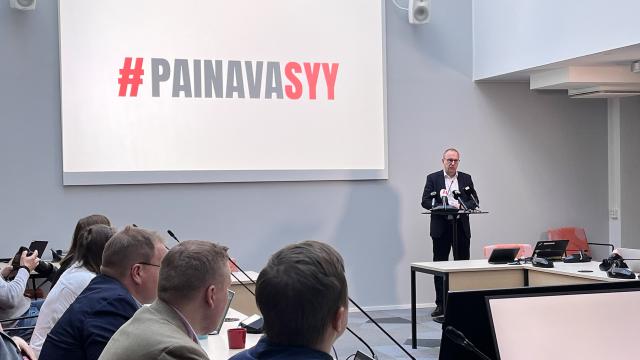When is unpaid job training legal in Finland? Check here
In some cases the callers wanted to check in advance whether unpaid training was possible. Other callers had completed the alleged training period, but had neither been paid for their work nor hired for a regular job.
Victim Support Finland has been hearing similar stories of foreign clients working for weeks without pay in the hope of getting a job. Instead, the employer had merely switched to another foreign “trainee” at some point without paying any compensation for the work done or offering the promised regular employment.
Many Finnish young and unemployed people are similarly familiar with unpaid “trainee positions” that really have nothing to do with learning any trade or occupation.
There are indications of even more serious abuse where immigrants are concerned: with undocumented migrants or asylum-seekers lacking the required language skills, not necessarily aware of the ground rules of working in Finland, and often unable to turn down such offers in practice.
When is an unpaid trainee position legal?
One general principle determines whether unpaid training is legal in Finland: these positions must be arranged for a specific educational purpose through an official educational institution or an Employment and Economic Development Office. This means that training is always part of some formal course of studies, or it has been agreed through an Employment and Economic Development Office as a guided internship.
The law does not specify the detailed content of on-the-job training that is attached to a course or forms part of such studies. This kind of training is common in the transport and social sectors, for example. When arranged through an Employment and Economic Development Office, training may also seek to improve the trainee’s employability and prospects of finding the right job.
Trainees must always have a specific individual at the workplace to support, advise and guide them in their work. Such workplaces may also have special mentors for this purpose.
While normal work is generally also an element of on-the-job training, there is a clear emphasis on instruction that enables the trainee to acquire new skills.
The educational institution or employment office will also generally support the training process, and the trainee will be specially protected against industrial accidents.
Employee suitability should be assessed over a proper trial period
Paying wages under the applicable collective agreement is a basic requirement of all work done in Finland. The employer may also agree with the employee that the job will begin with a trial period of up to six months.
A trial period gives the employer a chance to find out whether the employee has the required skills and aptitude for the work. It also gives employees an opportunity to consider whether the job and workplace meets their expectations. Normal wages are payable under the collective agreement during a trial period.
This means that a trial period is not unpaid “training”, but real employment. Even though the employee learns new things during such a period, the purpose of the period is to perform the job and achieve results. The employer has engaged the employee for work and not for practice.
Employees beware
You should always check that an offer of on-the-job training is legal. You are entitled to be paid for the work that you have done if it appears that the employer is assigning normal work duties under the pretext of training. There is no need to submit to exploitation.
The employee rights advisory service for immigrants can help if you are concerned about a trainee position. This service was specially established to advise newcomers working in Finland who have not yet joined a Finnish trade union. You may also call the service anonymously.
Members of a trade union should also turn to their union for help.
Check out the SAK employee rights advisory service for immigrants.
Anu-Tuija Lehto
Legal advisor
Maaret Pulliainen
Employee rights advisor for immigrants
News
 The Central Organisation of Finnish Trade Unions
The Central Organisation of Finnish Trade Unions


